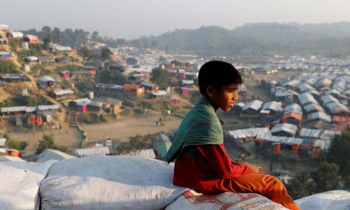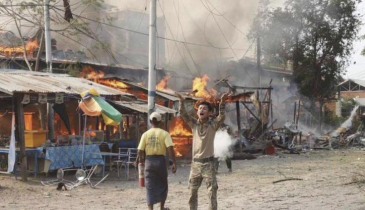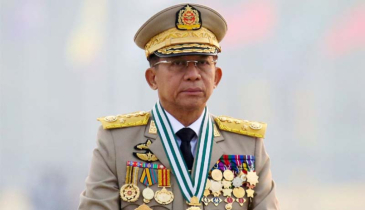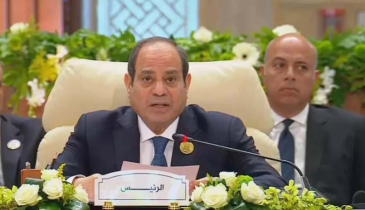Civilian Displacement and Violence Escalate in Conflict-Ridden Myanmar
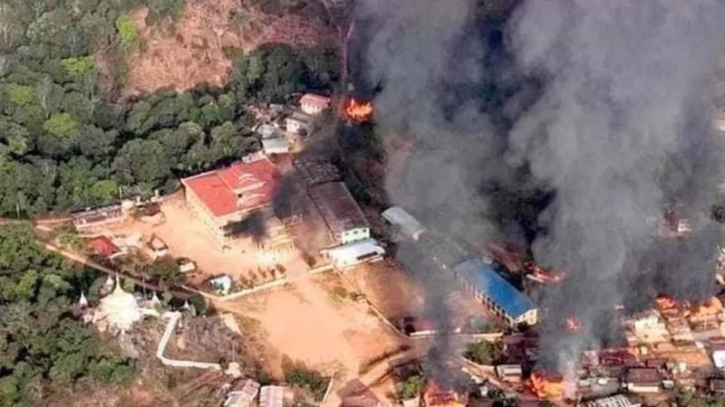
In the night of October 9, Seng Mai experienced a harrowing awakening as a deafening explosion shattered her shelter in Mung Lai Hkyet, a camp for internally displaced people in Myanmar's conflict-stricken Kachin State.
'The sound was so deafening that I questioned whether I had even survived,' recounted the 21-year-old.
As mortar rounds thundered from a nearby military post, she sought refuge in a makeshift trench. Chaos and desperation ensued, with a grandmother crying for help, her mother running barefoot, and terrified children struggling in the darkness to reach safety.
When the barrage finally subsided, it left a tragic toll: 28 civilians, including 12 children, lost their lives, and numerous shelters, a kindergarten, and a church were reduced to rubble. While rights groups have attributed the attack to the military, which seized power from the elected government of Aung San Suu Kyi in February 2021, the military has denied responsibility.
However, the military has a distressing history of targeting civilians and civilian areas, with its actions becoming increasingly audacious since the coup, according to a United Nations-appointed investigative mechanism. In August, this mechanism presented "compelling evidence" of the military's involvement in "more frequent and audacious war crimes and crimes against humanity."
Supporting these claims, a report released by the UN's human rights office last month revealed that the military had taken the lives of at least 3,800 civilians, destroyed nearly 75,000 civilian properties, and carried out almost 1,000 air strikes in the over two and a half years following the coup.
Fueled by their belief in impunity, the military's actions have escalated in intensity and brutality, resulting in a relentless cycle of violence that has engulfed all aspects of life in Myanmar.
The Kachin people, like many ethnic minorities in Myanmar, have long been subjected to human rights abuses by the military. The Kachin Independence Organisation (KIO), one of the numerous ethnic armed groups along Myanmar's borders, initiated their quest for autonomy in 1961. The military's strategy, known as the 'four cuts,' has aimed to sever the KIO's access to food, funds, intelligence, and recruits, specifically targeting civilians. However, this approach has only served to strengthen Kachin resistance, particularly following the breakdown of a 17-year ceasefire in 2011. The subsequent conflict displaced around 100,000 people, with most seeking refuge in camps. Over a third of them found shelter in KIO territory along Myanmar's eastern border with China, despite the military's Unlawful Associations Act criminalizing any association or support for the KIO.
.png)




